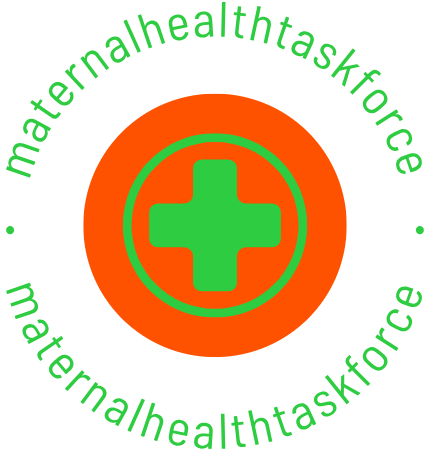Supporting maternal health during pregnancy is crucial for both the mother and the developing baby. From ensuring proper nutrition to engaging in safe physical activities, pregnant women need holistic care to navigate this transformative journey. The combination of best exercises for maternal health, mental well-being, and regular prenatal check-ups can make a big difference. Here’s how you can effectively support maternal health throughout pregnancy.

Physical Health Support
One of the best ways to support maternal health is through exercise. Regular physical activity can reduce pregnancy-related discomforts, improve mood, and even help with labor preparation. However, choosing the right exercises is key.
Best Exercises for Maternal Health
Not all exercises are suitable for pregnant women, but there are plenty of safe and effective options to stay fit. Low-impact exercises, prenatal yoga, and strength training can help expectant mothers maintain their energy levels and reduce the risk of complications.
- Walking: Walking is a gentle yet effective way to improve cardiovascular health and stamina. A brisk 30-minute walk daily can help maintain a healthy weight and enhance mood.
- Swimming: As a low-impact exercise, swimming helps relieve pressure on the joints and provides full-body conditioning without strain.
- Prenatal Yoga: Yoga helps strengthen core muscles, improve flexibility, and reduce stress. Prenatal yoga classes are specifically designed to be safe during pregnancy, with poses that focus on relaxation and breathing techniques.
- Strength Training: Light strength training using dumbbells or resistance bands can help maintain muscle tone and endurance. Focus on exercises that avoid abdominal strain and emphasize overall body strength.
Nutritional Support
Eating a balanced and nutrient-rich diet is essential for maternal health. During pregnancy, a mother’s nutritional needs change as her body works to support the growing baby.
Essential Nutrients for Pregnancy
- Folic Acid: This B vitamin is critical in preventing neural tube defects in the baby. Leafy greens, fortified cereals, and beans are excellent sources of folic acid.
- Iron: Iron helps support healthy blood flow and prevents anemia. Pregnant women need more iron, which can be found in lean meats, spinach, and fortified grains.
- Calcium: Calcium is essential for developing strong bones and teeth in the baby and maintaining the mother’s bone health. Dairy products, almonds, and leafy vegetables provide the necessary calcium.
- Omega-3 Fatty Acids: Omega-3s are vital for the baby’s brain development. They can be found in fish like salmon, walnuts, and flaxseeds.
Staying hydrated is also important for maternal health. Pregnant women should aim to drink plenty of water throughout the day, as hydration supports the body’s increased blood volume and reduces the risk of urinary tract infections.
Emotional Well-being
Pregnancy is not just a physical journey; it’s an emotional one too. Supporting maternal mental health is equally important for a healthy pregnancy. Stress, anxiety, and mood swings are common, and addressing them can lead to a more balanced pregnancy experience.
Managing Stress and Anxiety
To support emotional well-being, pregnant women should incorporate relaxation techniques into their daily routine.
- Mindfulness and Meditation: Practicing mindfulness or meditation can help expectant mothers manage stress and maintain a calm mindset.
- Prenatal Massage: A prenatal massage is not only relaxing but also helps relieve physical discomforts such as back pain and swelling.
- Support Networks: Having a strong support system is crucial. Friends, family, or pregnancy support groups provide emotional support and reassurance.
Rest and Sleep
Getting enough rest is vital during pregnancy. Many women experience sleep disturbances due to discomfort, anxiety, or hormonal changes, so finding ways to rest is essential.
- Sleep Positions: Sleeping on the left side improves circulation to the baby and reduces pressure on the mother’s back.
- Comfortable Bedding: Using pillows to support the belly and legs can enhance comfort and promote better sleep quality.
Regular Prenatal Check-ups
Routine prenatal visits are an important part of supporting maternal health. These check-ups allow doctors to monitor the baby’s development, assess the mother’s health, and address any concerns early on.
Importance of Medical Guidance
During these appointments, doctors provide guidance on nutrition, exercise, and any necessary lifestyle adjustments. They also track vital signs such as blood pressure and fetal heartbeat to ensure both mother and baby are healthy.
- Ultrasound Scans: Ultrasounds allow healthcare providers to monitor the baby’s growth and detect any potential issues.
- Blood Tests: Regular blood tests help monitor iron levels, glucose, and other essential markers.
Conclusion
Supporting maternal health during pregnancy involves a combination of physical, emotional, and medical care. Incorporating the best exercises for maternal health, such as walking, swimming, and prenatal yoga, can keep the body strong and reduce pregnancy-related discomforts. A well-balanced diet rich in essential nutrients like folic acid and calcium supports the baby’s growth while managing emotional well-being reduces stress. Lastly, regular prenatal check-ups ensure that both mother and baby are healthy throughout the pregnancy journey. By addressing these key areas, mothers can enjoy a safer, more fulfilling pregnancy experience.










